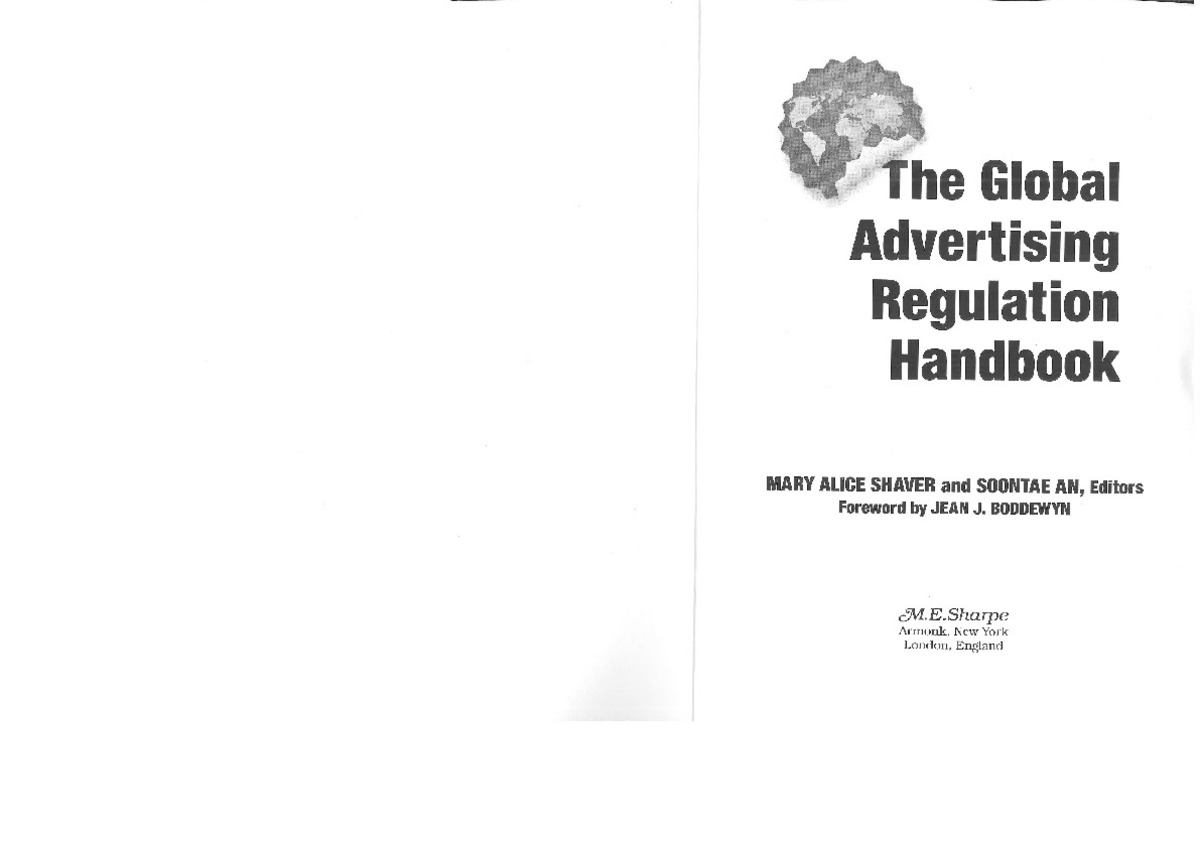Full metadata record
| DC Field | Value | Language |
|---|---|---|
| dc.creator | Medina, M. (Mercedes) | - |
| dc.date.accessioned | 2023-02-21T10:12:50Z | - |
| dc.date.available | 2023-02-21T10:12:50Z | - |
| dc.date.issued | 2014 | - |
| dc.identifier.citation | Medina, M. (Mercedes). "Mexico, Colombia, Spain". En The Global Advertising Regulation Handbook (pp. 18-144). M.E. Sharpe, 2014 | es_ES |
| dc.identifier.isbn | 978-0-7656-2968-5 | - |
| dc.identifier.uri | https://hdl.handle.net/10171/65515 | - |
| dc.description.abstract | Mexico has an area or almost 2 million km2 (more than 761 ,0()0 square miles), putting it in fifteenth position in the list of countries ranked by area (LOC 2008). As of July 2012, it had close to 1 15 million people, so it is the most populous nation in the Spanish-speaking world (CIA 2013). Politically speaking, Mexico is a federal, democratic, and representative republic; its government is based on a presidential system according to the 1917 constitution. It is composed of 31 states and one federal district. The constitution establishes three levels of government: the federal union, the state governments, and the municipal governments. Until 2000, the only political party in the government for 71 years was the Institutional Revolutionary Party (PRI). Since then, presidential candidates from other parties have taken power in the general elections, but in 2012, a PRI candidate, Enrique Pefia Nieto, once again became president. Prior to 2000, the government centralized the control of the country and had in Televisa, one of the largest media groups, an efficient communication channel to public opinion. | es_ES |
| dc.description.abstract | Colombia is a democratic republic located in northern South America with a population of about 45 million as of 2012. The country has endured decades of conflict and guerilla influence that threatened civil liberties. Since 1991, however, it has had a written constitution, where the people's fundamental human rights are recognized. | es_ES |
| dc.description.abstract | Spain is a democratic country, organized as a parliamentary government under a constitutional monarchy. In 1978, at the end of the dictatorship, a written constitution was adopted. Since then, Spain has been divided into 17 autonomous communities, each one having its own regional government. In 2010, the Spanish population was 47 million. Spain has been a member state of the European Union since 1986. | es_ES |
| dc.language.iso | eng | es_ES |
| dc.publisher | M.E. Sharpe | es_ES |
| dc.rights | info:eu-repo/semantics/openAccess | es_ES |
| dc.subject | Mexico | es_ES |
| dc.subject | Colombia | es_ES |
| dc.subject | Spain | es_ES |
| dc.subject | Media market regulation | es_ES |
| dc.title | Mexico, Colombia, Spain | es_ES |
| dc.type | info:eu-repo/semantics/bookPart | es_ES |
| dadun.citation.endingPage | 144 | es_ES |
| dadun.citation.publicationName | The Global Advertising Regulation Handbook | es_ES |
| dadun.citation.startingPage | 18 | es_ES |
Files in This Item:
Statistics and impact
Items in Dadun are protected by copyright, with all rights reserved, unless otherwise indicated.






